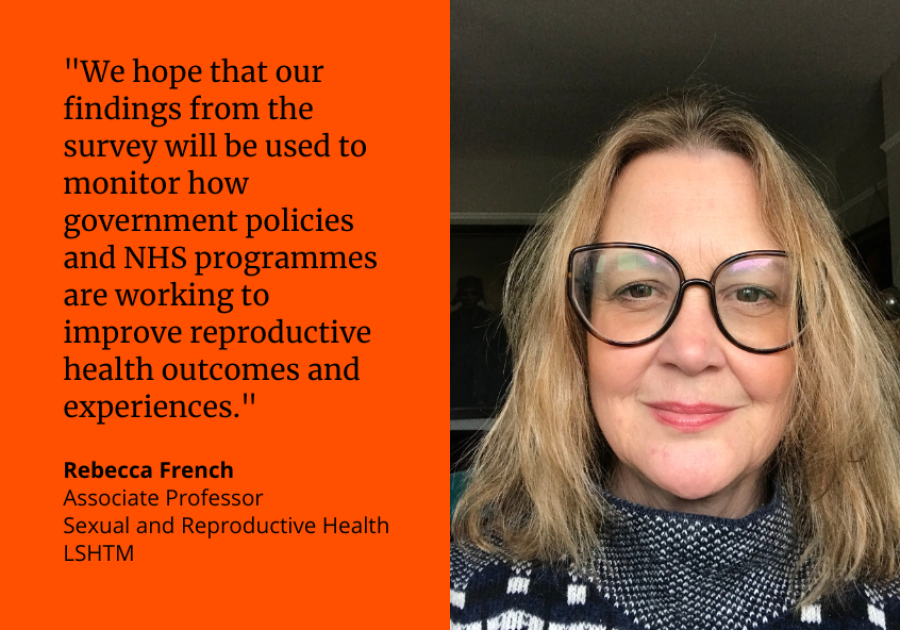Expert Comment – First findings of Women’s Reproductive Health Survey 2023
17 October 2024 London School of Hygiene & Tropical Medicine London School of Hygiene & Tropical Medicine https://lshtm.ac.uk/themes/custom/lshtm/images/lshtm-logo-black.png
Sexual and Reproductive Health Research specialists at the London School of Hygiene & Tropical Medicine (LSHTM) have published an initial summary of public responses submitted through the Women’s Reproductive Health Survey 2023.
The survey, which ran between 7 September and 19 October 2023, was the largest of its kind to be undertaken in England to date and received over 59,000 responses.
It aimed to capture the reproductive health experiences of women and people assigned as female at birth, aged between 16-55 years and resident in England, and included questions on: periods and menopause, preventing pregnancy and trying to get pregnant, pregnancy and birth experiences, and reproductive health conditions, such as endometriosis.
The team are continuing to analyse the responses in-depth but initially found:
- Painful or heavy periods were commonly reported and only a small proportion received professional help or advice for them in the last year. Of these, many experiences were negative.
- Most aged between 45-55 years did not report using hormone replacement therapy to help with symptoms of menopause. Of those who sought help or advice for menopause, experiences were generally positive.
- Common use of and good access to contraception were reported. Hormonal side effects were the most common reason for switching or stopping contraceptive methods.
- Of those who reported pregnancy in the last year, the majority were planned. A small percentage reported having had an abortion in the last year.
- Only a small percentage of those with reproductive health symptoms and conditions sought professional help or advice and experiences were mixed. Pain during or after sex was the most commonly reported symptom.
The survey was funded and commissioned by the UK Government’s Department for Health and Social Care (DHSC), as part of a commitment of the previous government’s Women’s Health Strategy for England.
The research team worked closely with voluntary partners Birth Companions, Brook, LGBT Foundation and Race Equality Foundation to increase awareness of the survey.
Dr Rebecca French, Associate Professor at LSHTM, lead for the study and who has worked in the area of reproductive health for 30 years, said: “We’re extremely proud to be working on a project that brings expertise in reproductive health policy together with real, lived experiences.
“The Women’s Reproductive Survey 2023 is the largest of its kind to date in England and we’re incredibly grateful for the people who took the time to share their experiences with us.
“We know there’s more work to be done to ensure we can capture the most representative snapshot of the current health service picture and we will continue to work together with our voluntary sector partners to ensure inclusion of those under-served in research.
“The scale of the support we’ve received has only added to our determination to keep talking about these issues and work is underway to analyse the information collected in greater detail.
“We hope that our findings from the survey will be used to monitor how government policies and NHS programmes are working to improve reproductive health outcomes and experiences.”
Dr Ona McCarthy, Assistant Professor at LSHTM, said: “Our initial findings show that access to reproductive health support and satisfaction with the support received varies by condition.
“We know that inequalities in access to and experiences of reproductive care in England exist. Our further analyses of the survey will focus on these disparities.”
Dr Melissa Palmer, Assistant Professor at LSHTM, said: “The survey’s main aim was to understand recent experiences of reproductive health in England, including the services being accessed and the support received.
“Through starting to analyse the data collected in greater detail, we hope to be able to examine who is most affected by poor reproductive health outcomes and how support can best be provided across different stages of people’s lives.”
A full summary of initial findings can be found on the study website.
LSHTM's short courses provide opportunities to study specialised topics across a broad range of public and global health fields. From AMR to vaccines, travel medicine to clinical trials, and modelling to malaria, refresh your skills and join one of our short courses today.